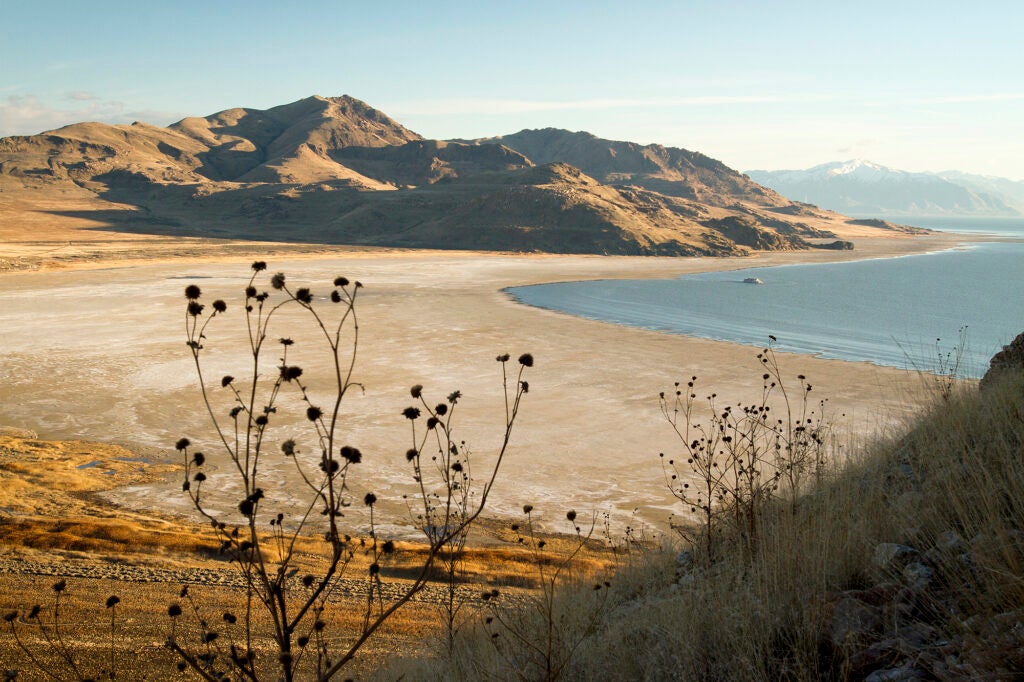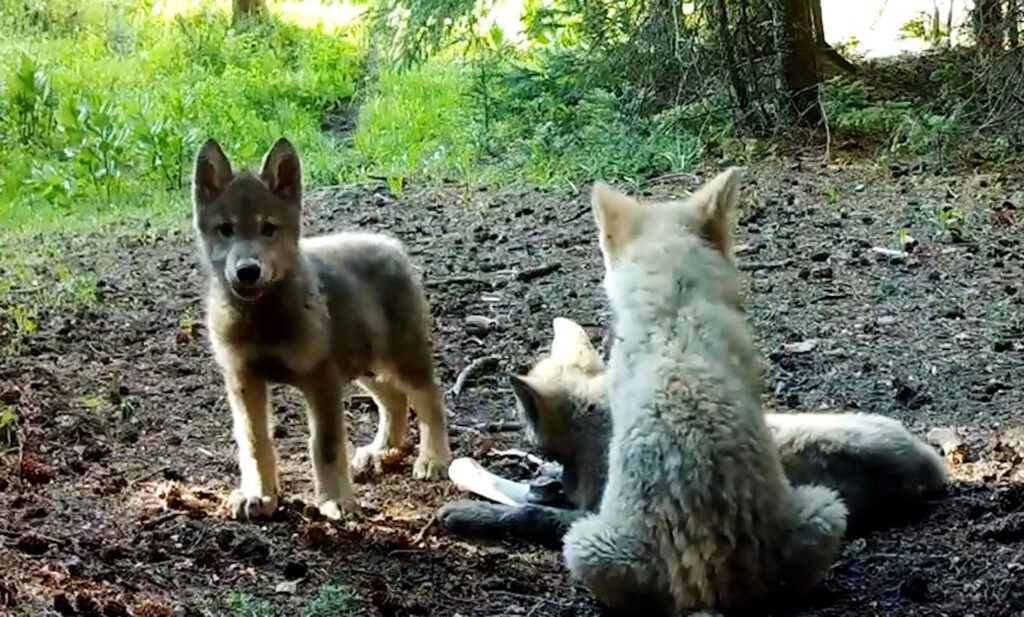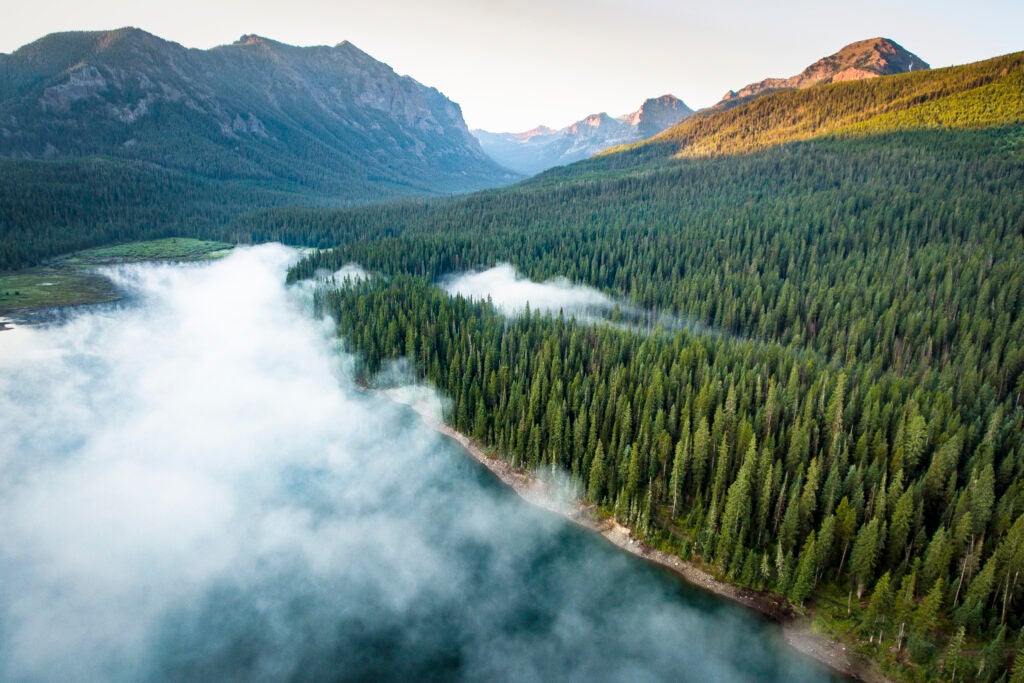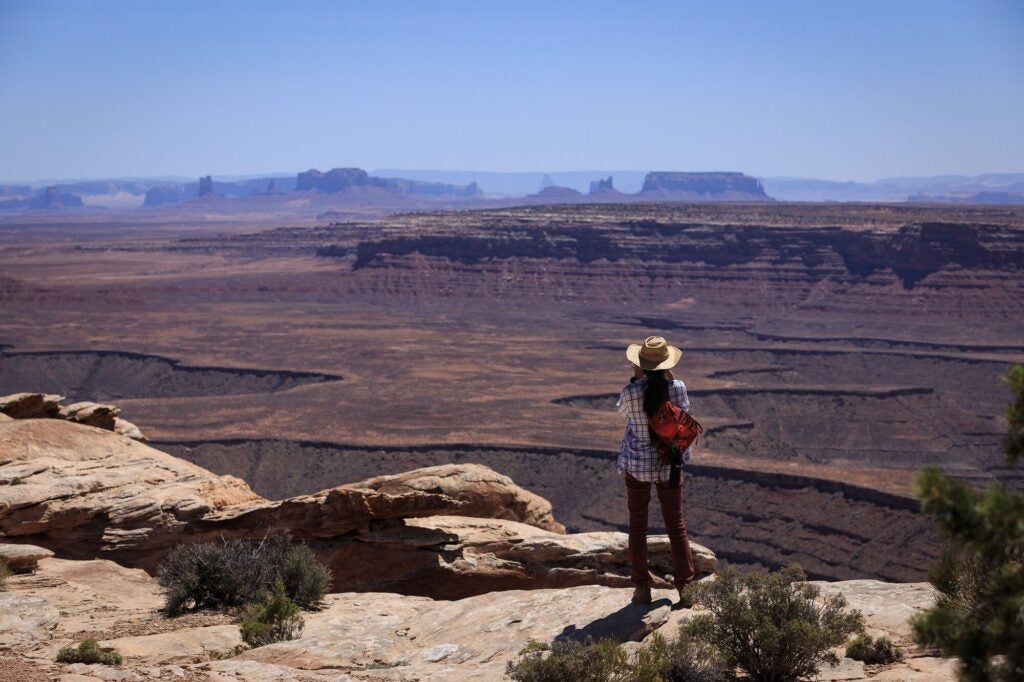(303) 623-9466
Denver, CO
rmoffice@earthjustice.org
Media Inquiries
Perry Wheeler
Public Affairs and Communications Strategist
pwheeler@earthjustice.org
Legal Assistance Inquiries
Contacto de Prensa
Robert Valencia
Estratega de Comunicaciones y Asuntos Públicos Hispanos/Latinos
rvalencia@earthjustice.org
Earthjustice’s Rocky Mountain office protects the region’s iconic public lands, wildlife species, and precious water resources; defends Tribes and disparately impacted communities fighting to live in a healthy environment; and works to accelerate the region’s transition to 100% clean energy.
Our Impact
Building on five decades of fighting for the Rocky Mountain region: Since our founding in 1971, Earthjustice’s Rocky Mountain office has fought successfully to safeguard the region’s cherished natural heritage and ensure the right of all to a healthy environment.
Safeguarding the Region’s Natural Heritage and Wildlife
More national parks and monuments are concentrated in the Rocky Mountains and the desert southwest than in any other part of the United States. The region is also home to vast wilderness areas and roadless landscapes that support a wide range of plants and wildlife, including many endangered species.
Earthjustice has a longstanding commitment to defend these irreplaceable lands. We’ve also long fought to protect legendary rivers like the Colorado, Green, and San Pedro, and the rich assemblage of plant and wildlife species they support, by maintaining healthy, sustainable flows, and advocating for conservation strategies and better water management planning, rather than draining these rivers for unsustainable use.
Highlights:
- We have a long history of defending national monuments, and most recently, have been in court since 2017 challenging the rollbacks of Utah’s Bears Ears and Grand Staircase National Monuments. Under the 1906 Antiquities Act, presidents may create national monuments, but they may not revoke them. In partnership with the five Tribes who led the effort to protect Bears Ears, and on behalf of the conservation groups who are our clients, we continue to press the Biden administration to use the Antiquities Act to restore full protection to these iconic places even as we use the legal tools available to us to challenge the illegal rollbacks.
- In the arid West, waterways mean life for the remarkable diversity of species that depend on them. The San Pedro River in southern Arizona is the last free-flowing river in the desert Southwest and a vital resting place for nearly half the birds that migrate to North America. Ocelots, jaguars, and other species depend on the San Pedro’s riparian habitat for survival as well. We have long fought to protect this important place from runaway groundwater pumping by developers and a nearby military installation that would drop the water table and leave the river dry.
- The Colorado River is an icon of our region and protecting it from overuse is mission critical. We’ve challenged federal permits for destructive hydropower projects located on the Little Colorado River, just outside Grand Canyon National Park. These hydropower projects would decimate the Grand Canyon’s endangered humpback chub and destroy irreplaceable cultural resources for numerous Tribes.
Fighting for Healthy Communities
In partnerships with communities that are overburdened by pollution, we’re fighting for environmental justice and the right to live in a healthy environment.
We’re working with Native American Tribes to oppose harmful oil, gas and mining activities on their lands where they have lived for generations.
We’re also partnering with disproportionately impacted communities in North Denver to limit pollution from a wide range of sources, including a large refinery located in their neighborhood.
Highlights:
- In a groundbreaking victory, we represented the Tohono O’odham Nation, the Pascua Yaqui Tribe, and the Hopi Tribe in a legal challenge to the development of a huge open-pit copper mine south of Tucson, Ariz., that would have obliterated thousands of years of Native American cultural heritage. The court agreed with us that the outdated 1872 Mining Law did not give the mining company the unfettered right to this sacred ground.
- Representing the predominantly Latinx neighborhood of North Denver, Earthjustice reached a settlement in which the state Department of Transportation agreed to conduct a community health assessment that will identify all of the cumulative sources of the health disparities in this neighborhood, which encompasses the most polluted zip code in the country. We will continue to work to protect the health of North Denver residents from myriad threats, including pollution from the state’s only oil refinery.
- In Colorado, we have worked to advance environmental justice and protections from harmful air and water pollution in the legislature, including by calling for enhanced monitoring of toxic air emissions, promoting state regulation of dangerous “forever chemicals” known as PFAS, requiring action towards the state’s clean energy commitments, and ensuring that communities are included in decision-making processes.
Accelerating the Shift from Dirty Fossil Fuels to Clean Energy
Our region is home to both rampant dirty fossil fuel development and ample opportunities to advance a vision for a different, clean energy future.
We seek to stop dirty fossil fuel development, including coal, oil and gas, and oil shale, and ensure that any development that does occur mitigates the climate impacts and is subject to robust protections for wildlife, groundwater, and air quality.
For example, we’re working to limit oil and gas drilling on public lands — including millions of acres across the West that are protected habitat for the imperiled greater sage-grouse.
And we’re fighting to stop the gutting of regulations that keep unchecked oil and gas development from harming our region’s air and groundwater — including federal rules that address climate impacts by limiting wasteful methane emissions and create safeguards that will protect wildlife, land, and groundwater from fracking.
We’re also working to implement landmark legislation in Colorado that:
- Reforms the mission of the Colorado Oil & Gas Conservation Commission — from “fostering” oil and gas development, to “regulating” oil and gas companies to protect and prioritize public health, and
- Requires the Colorado Air Quality Control Commission to “minimize” emissions of methane and other harmful air pollutants from the oil and gas industry.
At the same time, we are at the forefront of advancing equitable clean energy reforms across the region. In Colorado, our priority is to ensure that the state’s electric sector promptly transitions to clean energy, and we’ve successfully spurred the growth of rooftop solar, energy efficiency, and other distributed energy resources in numerous cases. We are also working for a cleaner and more equitable transportation sector, including a prompt transition to electric vehicles throughout the state. And with the addition of our first-ever Colorado policy advocate, we’re working to ensure that Colorado makes the hard regulatory and legislative decisions needed to fully realize its clean energy and environmental justice imperatives.
We’re similarly advocating for a prompt and equitable transition to clean energy in Arizona. Arizona is home to some of the best solar resources in the nation, and we have successfully opposed utility attempts to impose discriminatory charges on Arizona’s solar customers. We’ve also forced coal plants across Arizona to shut down well ahead of schedule and are working to halt the build out of gas-fired generation. We will continue our work to ensure that Arizona utilities fully harness Arizona’s abundant clean energy resources, minimize investments in gas plants, and maximize clean energy benefits for all.
Highlights of our work to rein in fossil fuel development and transition to green energy:
- We have challenged the Trump administration’s leasing of more than a million acres of crucial habitat for the imperiled sage grouse for oil and gas drilling in Montana and Wyoming.
- Our advocacy has resulted in effective regulation of methane emissions from the oil and gas industry, leading to Colorado’s adoption of the first methane reduction requirements in the nation in 2014, and we successfully pushed for nationwide regulation by the Environmental Protection Agency and the Bureau of Land Management in 2016. We have defended those rules from numerous attacks by the Trump administration and continue our fight to ensure that those rules are implemented and improved.
- Our work to implement Colorado’s landmark legislation reforming oil and gas regulations in the state has resulted in a profound shift in regulations, including “first-in-the nation” requirements that protect air quality and mandate 2,000-foot buffer zones between new oil and gas operations and homes and schools.
Highlights of our work to promote clean energy:
- After years of work by Earthjustice and our clients and allies, Colorado’s utilities plan to retire most of Colorado’s coal plants by 2030 and substantially increase the use of solar, wind, battery storage, and energy efficiency. In numerous cases before Colorado regulators, we have successfully argued that this clean energy transition must occur quickly and equitably, and that all Coloradans should have access to clean energy technologies.
- The transportation sector is now the largest source of greenhouse gas pollution in Colorado, and we are pushing Colorado to accelerate the transition to an equitable electric vehicle future. In doing so, we are lifting up the voices of communities that for too long have suffered at the hands of industry and that have been left out of decision-making processes.
- We have successfully opposed attempts by Arizona utilities to subject new solar customers to discriminatory fixed charges that would undermine the economics of rooftop solar. We are also deepening our work in Arizona to ensure that Arizona’s clean energy transition occurs promptly and equitably, and that disproportionately impacted communities have a robust voice in Arizona’s clean energy future.




